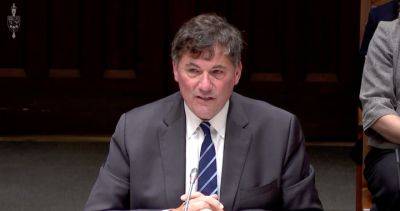Why doesn't Canada have more electric school buses?
For anyone who spent their childhood riding stinky, noisy school buses, it's a revelation to climb aboard one of the electric models coming off the assembly line at Lion Electric in Saint-Jérôme, Que., northwest of Montreal.
«The only thing you hear is the wheels on the road,» said founder and CEO Marc Bédard.
Proponents believe kids who ride e-buses show up calmer and more focused for school. U.S. data linking test scores to diesel fumes backs them up. But so far, only about two per cent of Canadian school buses offer students this advantage.
Bédard and his team are motivated to deliver technology that helps kids — not to mention the planet they're increasingly anxious about inheriting. But like many green entrepreneurs, he's faced challenges. Bédard lays one of his current problems at the feet of the federal government.
«There's nothing worse than announcing a program and not deploying it,» he said, adding he's frustrated by the slow pace of the federal approval process for the Zero Emission Transit Fund (ZETF).
This $2.75-billion fund was one of then-infrastructure minister Catherine McKenna's final announcements before the 2021 election. With $1.67 billion in loan financing from the Canada Infrastructure Bank, bus operators were supposed to be able to offset the high startup costs of transitioning to an electric fleet.
E-school buses are cheaper to operate and can pay for themselves over the long run. But their initial price tag is double what diesel replacements cost. The short-term contracts of private service providers, which supply most of the bus service across Canada, don't always provide incentives for longer-term change without government subsidies.
Federal delays contributed to layoffs: CEO
Based on the government's







